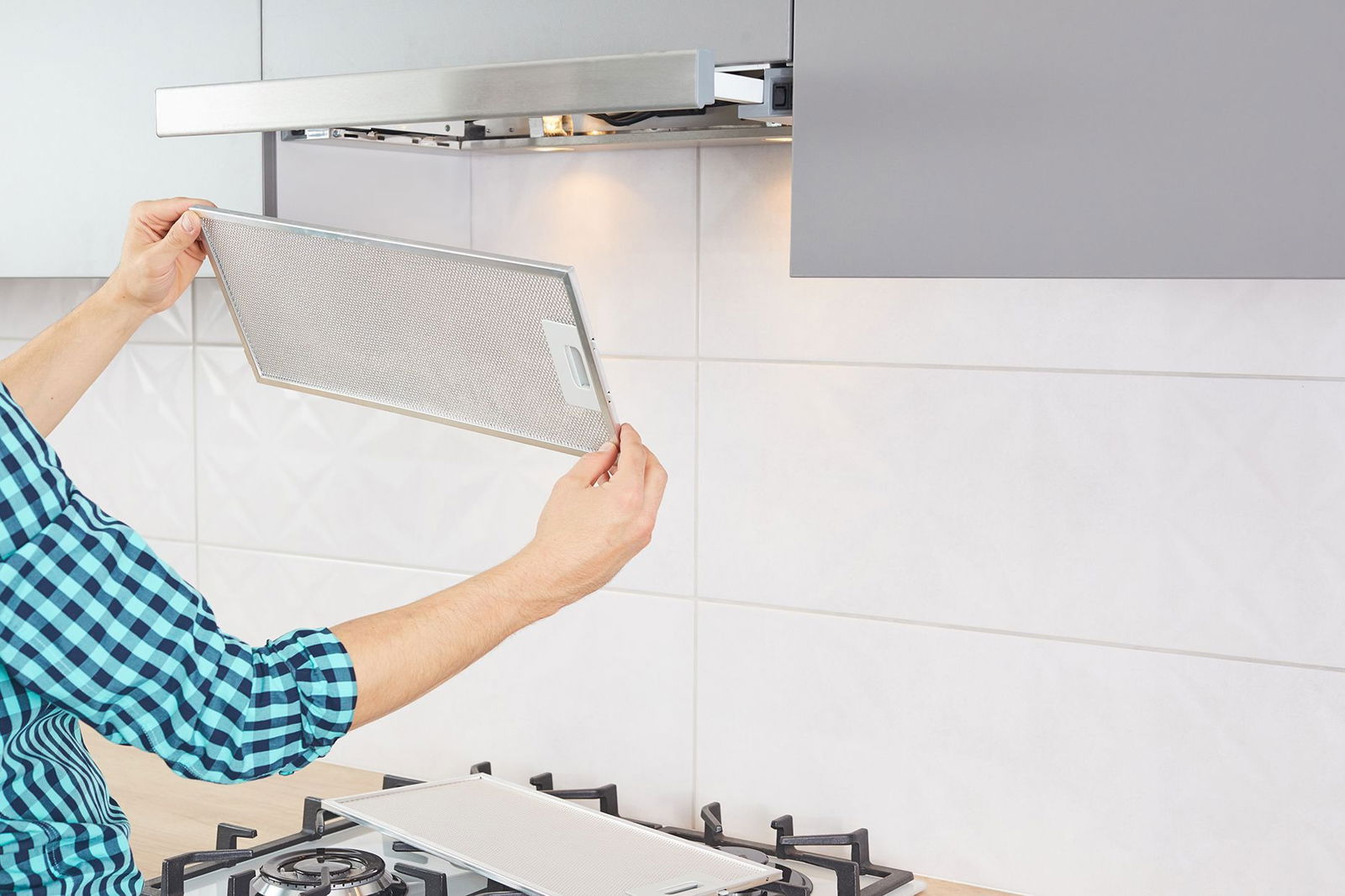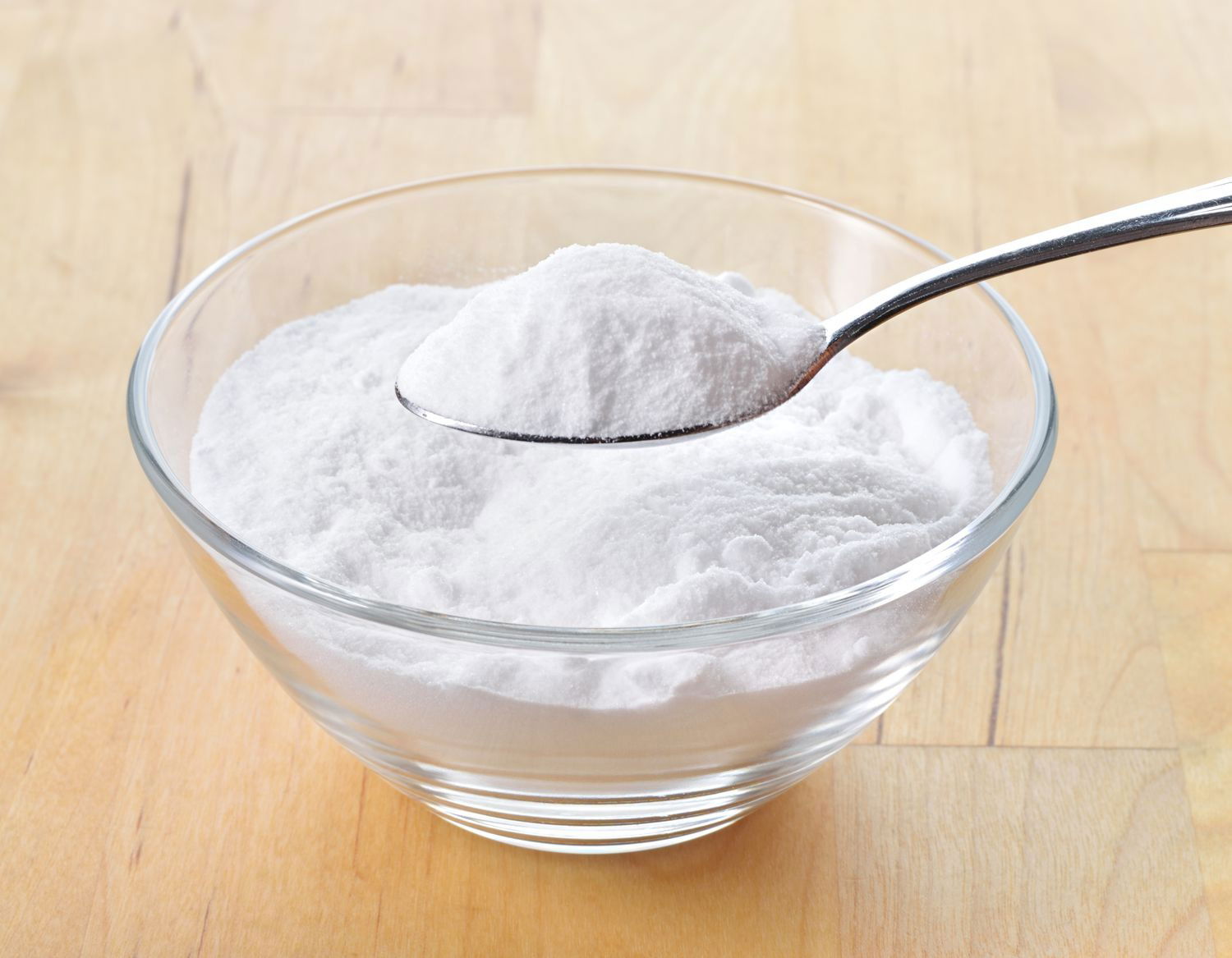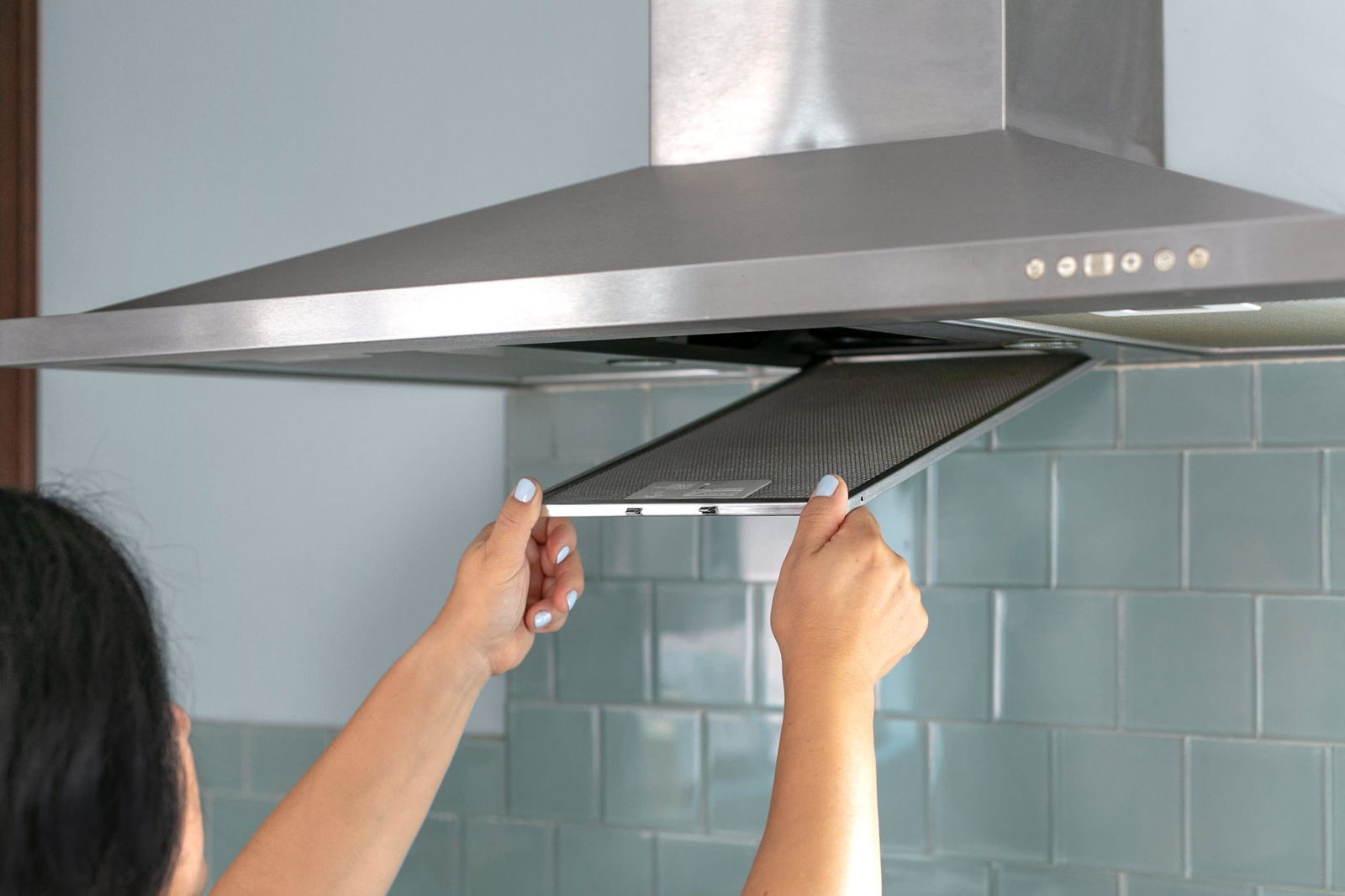
Did you know that some of the worst smells in your kitchen often don’t come from the trash or the oven? They often come from a spot many people overlook: the extractor hood filters.
That sleek metal piece above your stove is a hidden grease trap, where steam, smoke, oil, and food particles accumulate over time.
If these filters aren’t cleaned regularly, the grease solidifies, the fan loses efficiency, odors linger, and your kitchen no longer feels clean.
The good news? There’s a simple, inexpensive, and highly effective cleaning method you can do right at home.
Why Do Filters Get Dirty So Fast?
Each time you cook—especially with oil or high heat—grease particles turn into vapor and rise. The extractor fan pulls in this air, but the filters trap the grease, usually in aluminum or stainless steel layers.

Over time, this creates a sticky, dark buildup that smells unpleasant and weakens the fan’s ability to function properly.
Many people go months or even years without cleaning these filters, assuming they’re out of sight and harmless. But this buildup causes several problems:
- The extractor becomes louder and less powerful
- Cooking smells linger longer
- There’s a greater risk of fire if the grease ignites
A Simple Homemade Method to Clean Filters Thoroughly
You’ll need:
- Very hot water
- Baking soda
- Degreasing dish soap
- A deep basin or sink
- A soft brush or sponge
Steps to follow:
1. Remove the filters carefully
Make sure the hood is turned off and completely cool. Remove the filters gently, noting their placement so you can reinstall them correctly later.

2. Fill your sink or container with very hot water
The hotter the water, the easier it will be to loosen the grease.
3. Add the cleaning ingredients
Mix in about two tablespoons of baking soda and a generous amount of dish soap. Stir until the solution is foamy.
4. Soak the filters for 30 to 40 minutes
You’ll begin to see grease separating from the surface without scrubbing.
5. Gently scrub
Use a soft-bristled brush or non-abrasive sponge to clean off remaining residue. Avoid steel wool or harsh scrubbers that could damage the filter’s surface.

6. Rinse and dry thoroughly
Use warm water to rinse off any soap. Make sure the filters are completely dry before reinstalling them to prevent moisture damage.
How Often Should You Clean the Filters?
The frequency depends on how often you cook. If you cook daily, especially with oils or frying, a monthly cleaning is recommended. For less frequent cooking or more oven use, cleaning every two to three months may be sufficient.
Don’t wait until they look dirty—since filters are installed high up, buildup often goes unnoticed, but it continues to accumulate regardless.
What Happens If You Never Clean Them?

- The fan loses suction power
- Cooking odors linger long after meals
- Fire risk increases
- The extractor motor wears out faster
- Insects like cockroaches or flies may be attracted
Old, hardened grease not only creates unpleasant smells—it can also block ventilation and, in extreme cases, drip onto your cooking area.
Extra Tips to Keep Your Kitchen Smelling Fresh
Always run the extractor fan while cooking, even if you’re just boiling water.
Wipe the hood’s exterior with a cloth and a mix of water and white vinegar.
If your model uses a carbon filter, check whether it needs replacement.
After cleaning, a mix of lemon juice and hot water can leave a fresh scent.
Final Thoughts: Clean from the Top Down
We often clean our countertops, sinks, and floors, but if the ventilation system is clogged with grease, everything else suffers.
This cleaning method is practical, natural, and highly effective. Adding it to your regular kitchen routine not only keeps your space smelling fresh but also improves air quality and extends the life of your appliance.
Take a few minutes once a month—it’s a small effort with a big impact on your home and well-being.




















